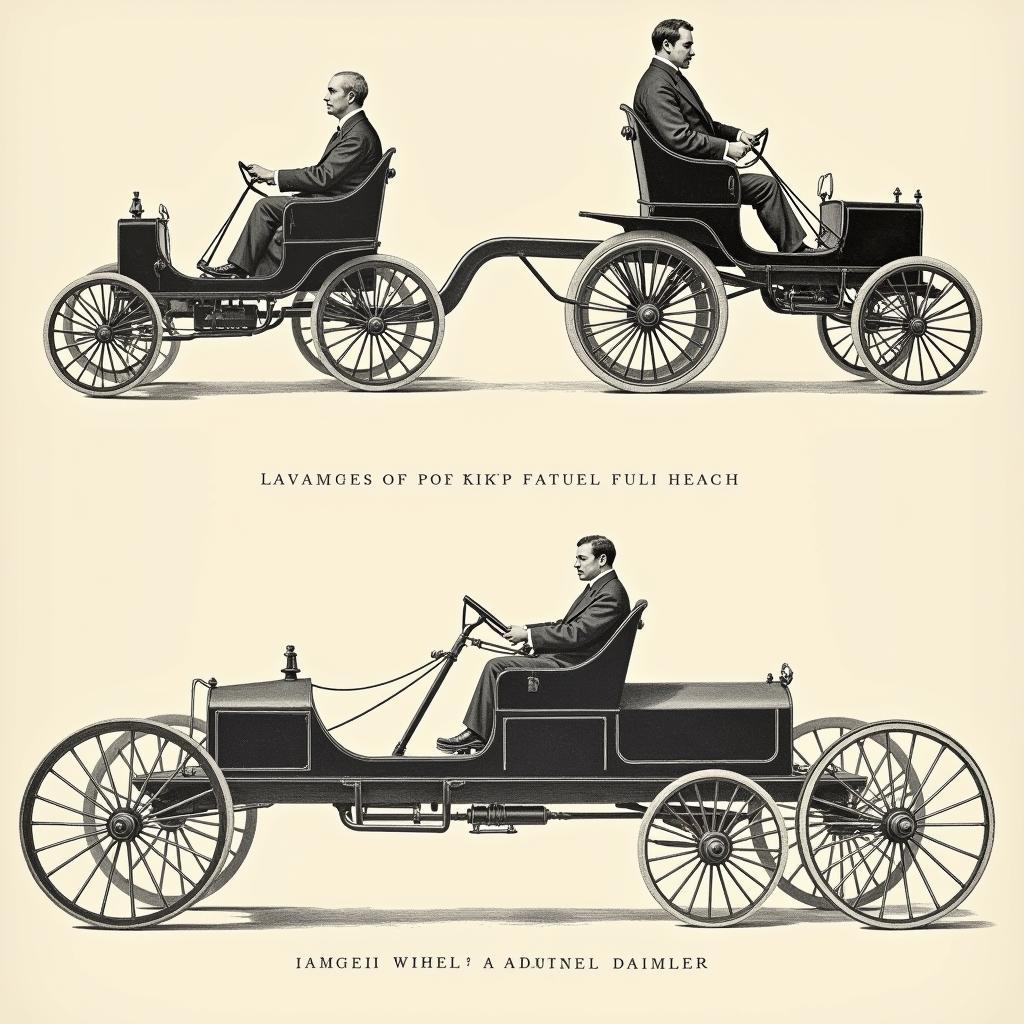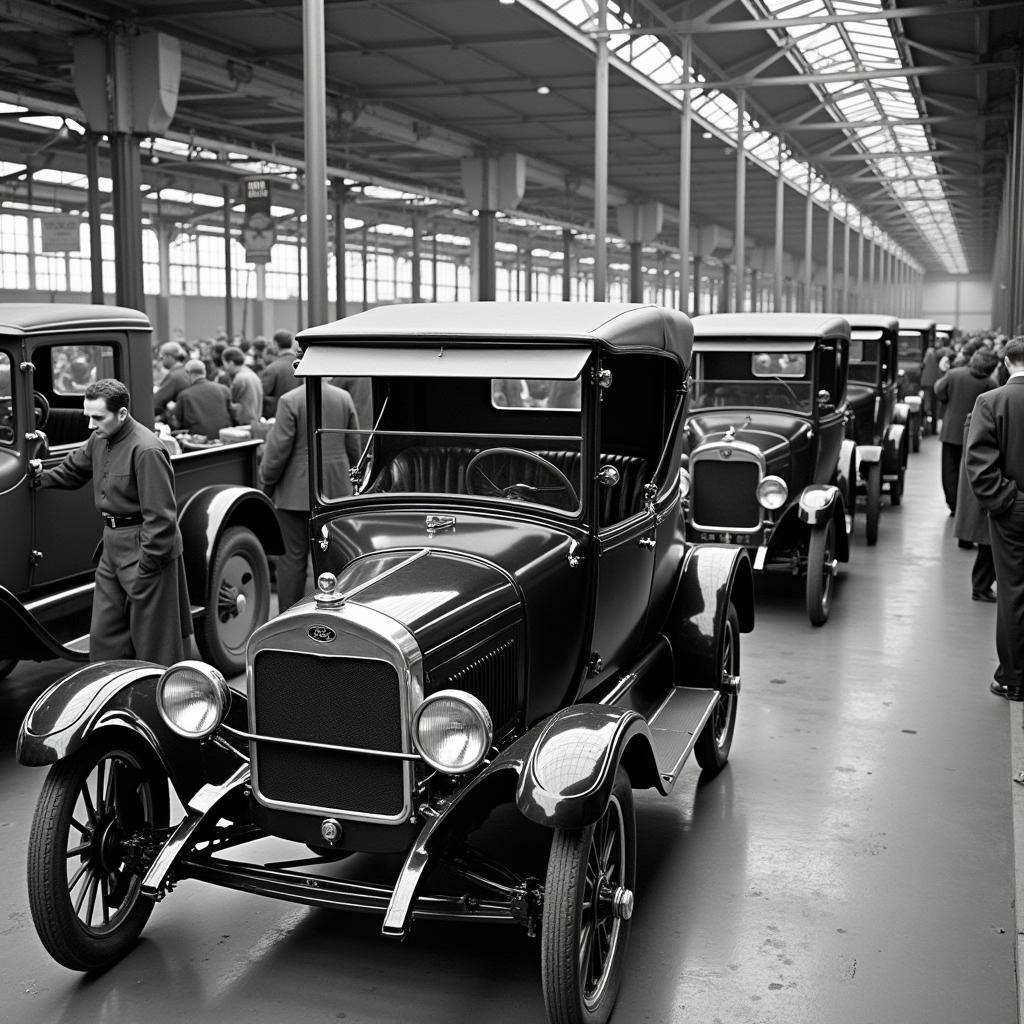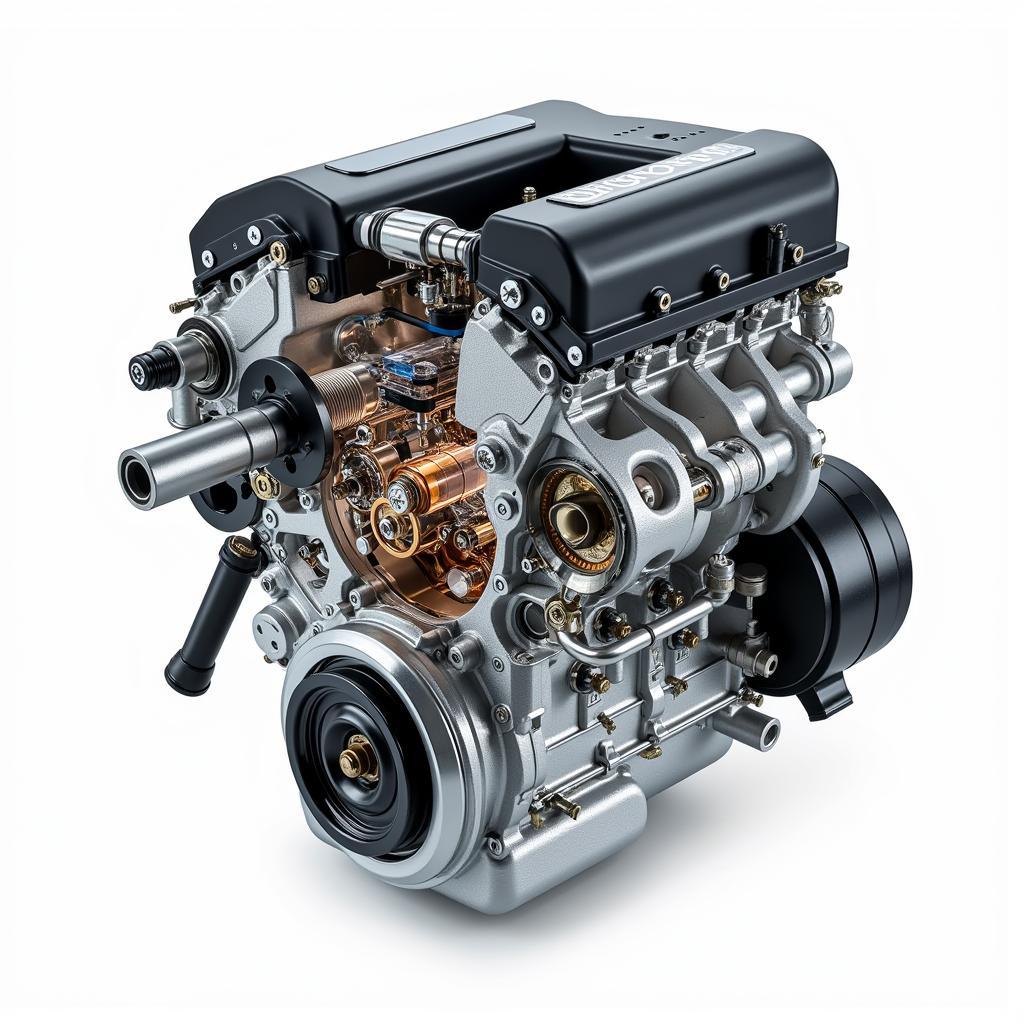The rumble of a gas engine, a sound once novel, is now commonplace. But how long has the gas-powered car been around? For over a century, the internal combustion engine (ICE) has propelled our vehicles, shaping transportation and the world around us. This article delves into the fascinating history of the gasoline-powered car, exploring its evolution, impact, and future in a rapidly changing automotive landscape.
The Dawn of the Gas-Powered Car
The story begins in the late 19th century, a period of remarkable technological innovation. While several inventors contributed to the development of the automobile, Karl Benz is widely credited with creating the first practical gasoline-powered car in 1886. His Patent-Motorwagen, a three-wheeled vehicle, marked a pivotal moment, ushering in the era of personal motorized transportation.
Shortly thereafter, Gottlieb Daimler and Wilhelm Maybach developed their own four-wheeled gasoline-powered vehicle. These early vehicles were far from perfect, suffering from reliability issues and limited performance. However, they laid the groundwork for the automotive revolution that would transform the 20th century. Want to know more about some fast cars? Check out whats the fastest car.
 Benz and Daimler's Early Gasoline Cars
Benz and Daimler's Early Gasoline Cars
The Rise of the Automobile
The early 20th century witnessed the rapid growth of the automobile industry. Henry Ford’s assembly line revolutionized car production, making vehicles more affordable and accessible to the masses. The Ford Model T, introduced in 1908, became a symbol of this era, democratizing car ownership and reshaping the American landscape.
As gas-powered cars became more prevalent, so did the need for supporting infrastructure. Roads were paved, gas stations sprung up, and entire industries emerged to cater to the burgeoning automotive market. This era saw the rise of iconic car brands like General Motors, Chrysler, and others, further solidifying the dominance of the gas-powered car.
 Ford Model T Assembly Line and its Impact
Ford Model T Assembly Line and its Impact
The Gas-Powered Car’s Impact
The impact of the gas-powered car has been profound and far-reaching. It has transformed how we live, work, and travel, connecting communities and fostering economic growth. The automobile has also had significant environmental consequences, contributing to air pollution and climate change. Are you interested in alternative fuel vehicles? You might want to read about the toyota hydrogen car.
Environmental Concerns
The environmental impact of gas-powered cars has become a major concern. Emissions from these vehicles contribute to smog, respiratory problems, and global warming. The search for cleaner alternatives has led to the development of electric vehicles, hybrid cars, and other sustainable transportation solutions. You can explore more about electric vehicles by reading about the ev1 car gm.
The Future of Gas-Powered Cars
While the gas-powered car has reigned supreme for over a century, its future remains uncertain. The rise of electric vehicles, stricter emissions regulations, and growing environmental awareness are challenging the dominance of the internal combustion engine.
“The automotive industry is at a crossroads,” says Dr. Eleanor Vance, automotive engineer and industry analyst. “The next few decades will determine the fate of the gas-powered car.”
The Evolution of Engine Technology
Over the years, gasoline engine technology has evolved significantly, becoming more efficient and powerful. Innovations like fuel injection, turbocharging, and variable valve timing have improved performance while reducing emissions. However, even with these advancements, the fundamental reliance on fossil fuels remains a key concern.
“Despite improvements in efficiency, gasoline engines still contribute significantly to greenhouse gas emissions,” notes Dr. David Miller, environmental scientist and sustainability advocate. “The transition to cleaner transportation solutions is crucial for a sustainable future.”
 Advancements in Modern Gas Engine Technology
Advancements in Modern Gas Engine Technology
Conclusion
From the rudimentary designs of the late 19th century to the sophisticated vehicles of today, the gas-powered car has come a long way. While its future remains uncertain, its impact on society and the environment is undeniable. As we look towards a future of sustainable transportation, understanding the history and evolution of the gas-powered car provides valuable context for the challenges and opportunities that lie ahead. Perhaps you’re interested in a different kind of car altogether? Take a look at volkswagen bus car or golf cart cars for sale.
FAQ
- Who invented the first gas-powered car? Karl Benz is widely credited with inventing the first practical gas-powered car in 1886.
- When did gas-powered cars become popular? The early 20th century, particularly after the introduction of the Ford Model T, saw a surge in the popularity of gas-powered cars.
- What is the environmental impact of gas-powered cars? Gas-powered cars contribute significantly to air pollution and climate change due to their greenhouse gas emissions.
- What are the alternatives to gas-powered cars? Electric vehicles, hybrid cars, and hydrogen-powered vehicles are some alternatives to gas-powered cars.
- What is the future of gas-powered cars? The future of gas-powered cars is uncertain due to the rise of electric vehicles and growing environmental concerns.
- How has gas engine technology evolved? Gas engine technology has evolved to become more efficient and powerful through innovations like fuel injection and turbocharging.
- Why is the transition to cleaner transportation important? The transition to cleaner transportation is essential for reducing greenhouse gas emissions and mitigating the effects of climate change.
Situations requiring support
- Trouble connecting your Dealer Scanner to the vehicle’s diagnostic port.
- Difficulty interpreting the error codes displayed by the scanner.
- Need for assistance in using advanced features of the Dealer Scanner.
- Questions about vehicle-specific diagnostic procedures.
- Issues with the Dealer Scanner software or hardware.
Suggested Further Reading
- Understanding OBD-II protocols and their use with Dealer Scanners.
- Advanced diagnostics for modern vehicle systems.
- The future of automotive diagnostics: emerging technologies and trends.
If you need help, contact us via WhatsApp: +1(641)206-8880, Email: [email protected] or visit us at 276 Reock St, City of Orange, NJ 07050, United States. We have a 24/7 customer support team ready to assist you.


